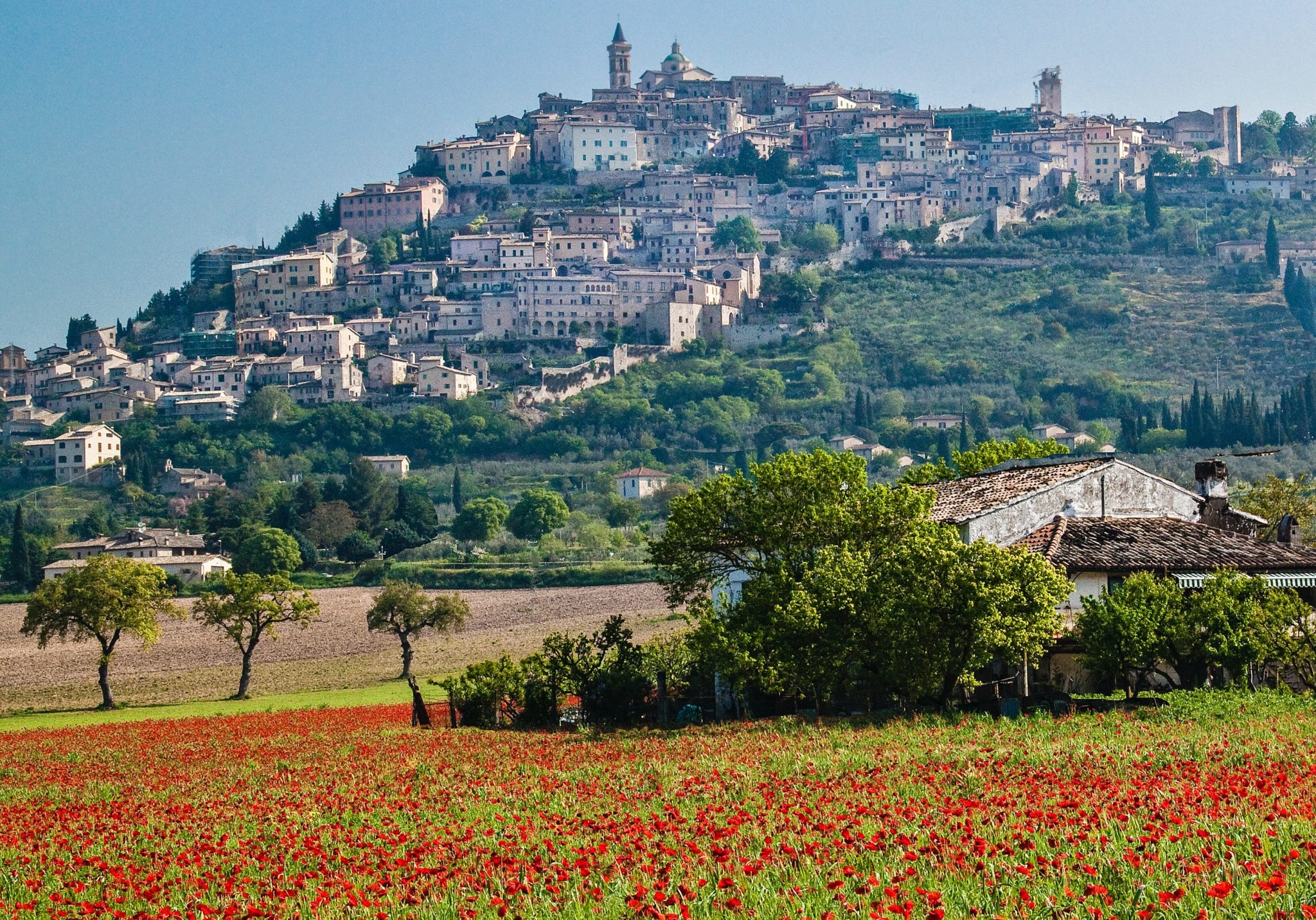Where to find the real Spaniards – and other cultural detours you can actually fit in as alternatives to Europe’s tourist-infested cities
(someday we will travel again!)
By SarahBelle Selig
Busy planning your post-pandemic European trip? If you’re anything like me, you’re looking for a place with a lot less people than you’d find in the typical hotspots.
Check out these three refreshing alternatives to Europe’s tourist-infested cities, that are just off the beaten path and offer the culture – and the social distancing – you’re looking for, without costing you too much extra travel time or money. And because these towns aren’t everyone’s favorite vacation spots where tourism operators jack up prices like it’s their job, you might even save money on food, wine, and experiences, which of course you can then spend on more food, wine, and experiences. You’re also supporting local economies that need it, and you’ll be surrounded by locals that actually want you there, people who are interested in hearing your stories and can’t wait to share their town with you.
So whether you’re on a two-week holiday with a tight timeline and booked round trip flights, a “second-timer” in Europe who has already hit the mainstream track and is looking for something a bit more local, or you’re on a three month backpacking extravaganza with a pocket of dwindling cash and a general plan to hit the major cities, don’t miss these cultural hotspots that will add more value to your trip than their more eminent counterparts.
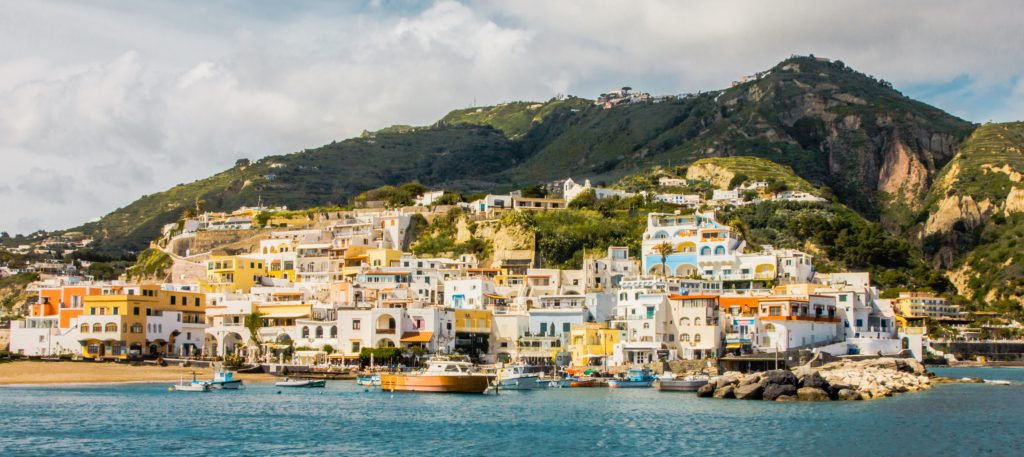
Capri, Italy Ischia, Italy
Ischia is a volcanic island thirty kilometers off Naples (or Napoli, if you’re one of those tourists that comes back from Italy saying things like buonasera and Salve!) and thirty kilometers from its more popular little sister, Capri. Both islands are accessible via ferries that leave from multiple destinations along the Amalfi Coast. Ischia is the largest of the three inhabited islands in the Gulf of Naples, including the third, slightly dodgier sister Prochida.
Ischia is known for its natural hot springs, and – if you ask any female under the age of 25 who has visited the island – a certain hostel owner named Shaun and his too-tight, too-short swim trunks. But unlike Capri, with its upscale resorts and famous Blue Grotto, Ischia is not swamped by designer-clad tourists, day chalets that cost more than your car, and you won’t have to pay half of your savings for a bowl of cioppino and a glass of Chianti. On Ischia, you’ll get a healthy dose of local flavor while still relishing in the luxury of an Amalfi getaway.
Your day in Ischia:
You wake up and open the terrace doors of your room to the sunrise. Stroll to the pool, which overlooks the vineyard and the ocean beyond. You greet Lupo, the resident dog at Paradise Beach hostel, where you’ve just had a comatic, caipirinha-induced night’s sleep. You brush off an oncoming hangover with a quick dip and a chapter of Midnight in Sicily, which you hate but are determined to finish by the time you arrive in Catania. You overhear that a group of hostel-goers are renting Vespas to tour the island, hurry over, imbed yourself in the conversation, and quickly get invited.
The group walks to the Vespa rental shop just down the road. You rent a double seater with one of the other backpackers and bond quickly, because your arms are going to be around him for the next four to six hours. You question the suitability of the helmet they gave you, which feels like something out of the Space Race. You wear it anyways. The fleet takes to the streets in the direction of Cava Isola Bella beach, a recommendation from Shaun, the hostel owner (seriously, have you seen that guy’s shorts?). You’re wearing a bikini on a motorbike and a Guatemalan man you don’t know is driving. You question your senses, then remind yourself that you’re in Italy. You throw your cares to the wind and hold on tight.
The beach is drenched in sun and people. Guatemala secures your group a spot between two massive tan boulders. You run to the ocean (it’s July and your bikini is soaked with your own sweat and your co-pilot’s). The water is freezing and feels incredible. You left Midnight in Sicily at home and opt for a salty beach nap.
You return the Vespas by five and make sure to make it back to Paradise in time for happy hour, where you get a pitcher of wine at a discount. As the other Paradise patrons gather, you join in as they hassle the young bartender for the secret to the caipirinhas. You resolve to steer clear of those tonight after too many the evening before. At this point, the Italian grandmas that run the place have set the table with spaghetti, garlic bread, and meatballs. You eat it all. The clouds behind you are salmon pink. After dinner, you take your book to the small garden, but in ten minutes you cave, order a caipirinha, and pull up a plastic chair to the card game just beginning at the round patio table.
Just before midnight, you put on your walking shoes and join the rest of the crew for a night venture to the Sangello hot springs. You’re gratefully drunk for this; it’s a 45-minute walk. When you arrive, your feet are sore, and you peer down the cliff side – we’re going there? You descend the stairs, which feels like you’re descending towards Hades, and follow the sound of the old boombox playing horrible Italian rap music. You look around. The cliffs meet the ocean in a set of massive boulders, between which pools of water have gathered and are freckled with lanky Italian teenagers in bright swimsuits. The water is steaming – the water is… steaming? Yep, you’re in an oceanic hot spring. At midnight. Off the coast of Italy. You don’t remember the name of the island at this point but believe it sounds something like Isabella.
You and your gang are the only non-Italians there. You watch the local teenagers chain smoke cigarettes, slug birras, and take turns making out in the hot pools. It’s a scene straight out of Call Me by Your Name and you’re loving it. You sink down into the warm water and watch the moonlight reflect on the surface. You’re in the ocean and it feels like a jacuzzi. It’s confusing. You’re sweating rum and meatballs and it’s perfect.
An hour or so (who can tell?) later, you slink from the water and follow your crew back to base camp. Your arms feel like they don’t work. You arrive back at the hostel at god-knows what hour. Your feet and fingers are pruned, and your body feels like a heavy anchor pulling you to the depths of the sea. You bid the group goodnight, close the terrace doors, kick off your sneakers, throw Midnight in Sicily beneath the bed, and proceed into comatose to the smell of tobacco, Lupo’s wet fur, and sweet wine.
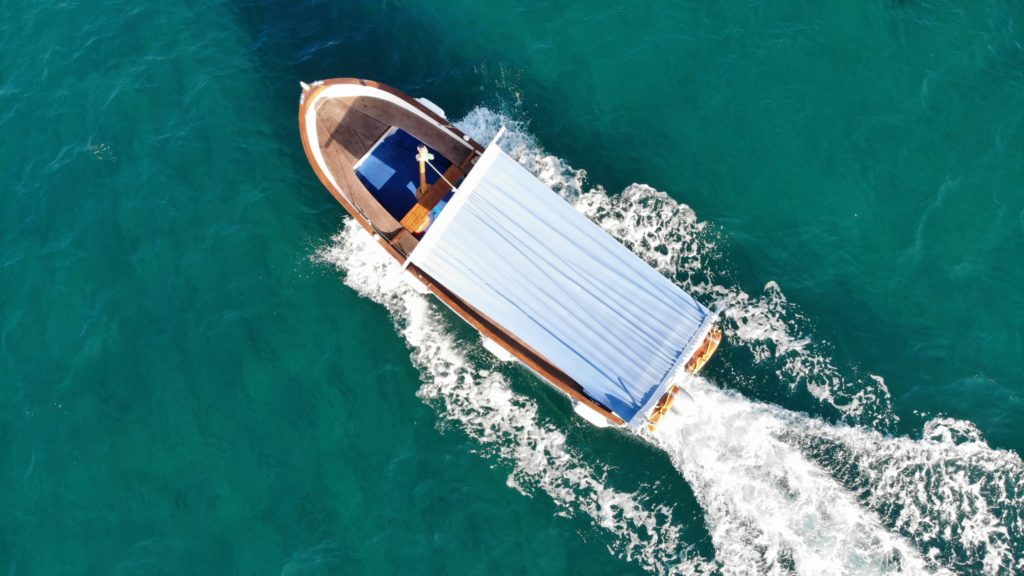
Pro-tips for this alternative to Europe’s tourist-infested cities:
- Do not, I repeat – do not, rely on the bus schedules to make it to your boat on time. The bus travels in two routes: clockwise, and counterclockwise. That’s it. And the schedule is really a recommendation of sorts. Catch the bus that’s three hours earlier than you need because it will (potentially) get you there on time. Worst case scenario: smile pretty, put out that thumb and hitchhike your way to the port. Half the people that drive past are going that way anyways.
- If you don’t have time to hit every stop on Amalfi coast but must be able to tell everyone back home about your time in Positano, take the boat from Ischia to Sorrento. It’s essentially an Amalfi booze cruise, disguised as a cheap ferry ride from the islands to the mainland. Buy the overpriced, ice cold Peroni and sit out on the front of the boat, which will stop in Capri, Salerno, Amalfi, and Positano, and you’ll be able to get a good feel for all of them from the comfort of your front row seat.

Stratford-upon-Avon, England Hay-on-Wye, Wales
Hay-on-Wye is adorably, and appropriately, nicknamed the Town of Books. In the historic county of Breconshire in Wales, Hay-on-Wye is home to just over a thousand full-time residents, most of whom live on farms just outside of town. The buildings in town are mostly stone, the streets cobbled. But while Hay is known for just that (the hay fields that surround the city), it’s better known for having over twenty bookshops within a mile radius of each other. There’s a bookstore for everything: murder novels, romance, poetry, and then the flagship shop: Richard Booth’s Bookstore. Booth established the town and his catch-all bookshop in 1962 and served as self-declared King of Hay until he passed away last year.
Hay-on-Wye is the home to the world-renowned Hay Festival every May, which brings in thousands of eager readers and bestselling authors to the tiny town for one bustling, ten-day ten-night shindig. But for the other 51 weeks a year, Hay is sleepy and quaint. With its lovely bookshops, candle-lit family run restaurants, and a castle whose gate walls have been turned into bookshelves, this town probably more closely resembles what Stratford Upon Avon looked like in Shakespeare’s time than the tourist destination his birthplace has become.
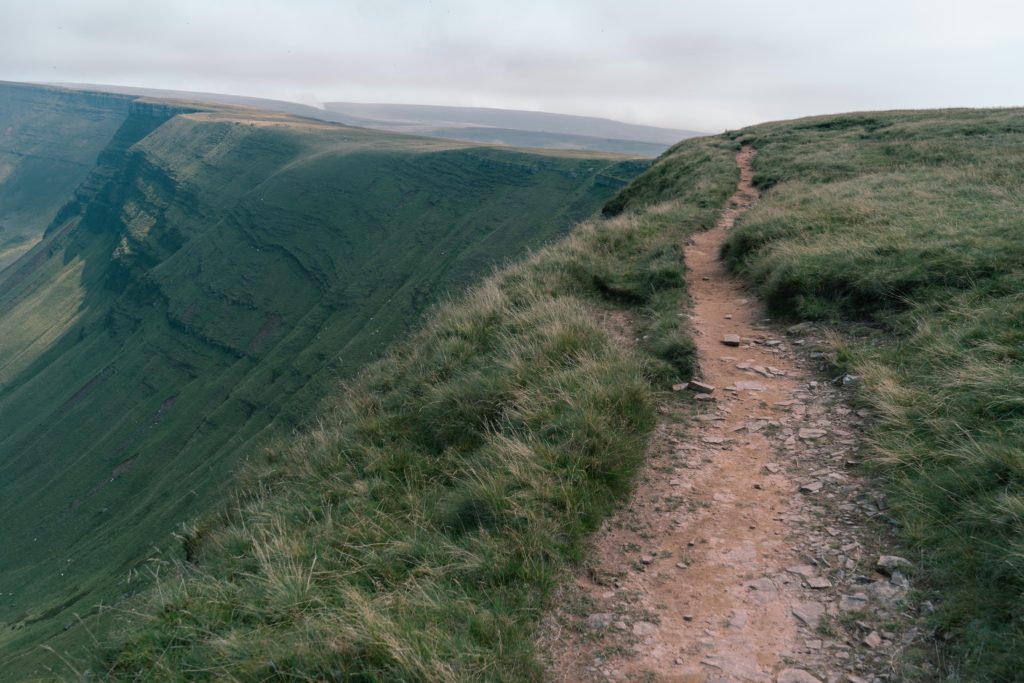
Your day in Hay:
You took the early train into Hereford. The station is empty on a Sunday morning, you search in vain for the bus stop. It’s the only way to Hay. A ticket lady points you to a small bench halfway down the block.
The bus arrives. You lug yourself and your heavy backpack onto it and cram awkwardly into the only place you’ll fit – the handicap section. You note the looks from the other bus-goers, all over the age of hundred and probably more in need of the handicap seat than you are. It’s the first time since you arrived in the UK that anyone has looked properly shocked at your backpack; clearly, this bus is not for your average tourist. You soon find out why from an older woman next to you named Maria. She’s American but has lived in Hay for over twenty years and seems to sympathize with the sweat and sheer desperation of an American backpacker who is incredibly out of place. It’s a community bus, she says. The town council voted on it, and it’s run by retirees from the village, because the Hereford bus doesn’t run on Sundays and the taxis to get to Hay are far too expensive for the town’s mostly farmer or shop-owner residents.
The bus ride is shockingly beautiful. The Golden Valley, Maria tells you. And Golden it is. Lush trees, green and yellow hills, and bright red poppy fields freckled with Welsh cobs and lambs. It’s about forty minutes into Hay, and as you near town, the bus driver begins dropping each rider off at their cottage gate. You’re the last one off, and he drops you off right in front of your Airbnb, which is a room you’ve rented in the upstairs of someone’s two-bedroom townhome. The owner has left the door unlocked with a note saying he’ll be back in the afternoon.
You don’t waste a moment unpacking; you drop your bag and head into town. There are too many bookshops, you’ll have to pick a few. You relish in this dilemma. You read old scripts at the Cinema bookshop, some Wadsworth at the poetry bookshop, pick up an Agatha Christie book you haven’t read at The Murder and Mayhem, and spend half an hour completely engrossed with Amelia Bedelia at the children’s shop. You save Booth’s for last and it’s exactly what you hoped: three floors with rows and rows of shelves packed to the brim with new and old books of all shapes, thickness, and colors. You threaten to buy your thirdcopy of Jane Eyre, but you put her back on the shelf with a pat goodbye.
You pick up a to-go lunch from the deli and decide to take Maria’s recommendation and check out St. Mary’s Church. Or at least, you try to. About an hour into your walk, you realize you’ve made a grave mistake. Town is… far. The grasses on either side of the road are taller than you, and you can’t see anything except the road in front of and behind you. Surely Maria wouldn’t have recommended a trek? You swallow your pride and turn on your expensive phone data. Miraculously, there is service. You Google it and – ah, there are two St. Mary’s Churches. One is right next to the deli. The other is… well, halfway to England.
Suddenly there’s a tractor in the road. Are you about to hitchhike on a tractor? Yes, you are, you laugh at yourself, and wave a hand. The farmer is, once again, quite elderly, and gladly lets you onboard. You chat the whole way back to town. He’s lived in Hay his whole life. Would you like me to show you my favorite place in town, he asks. Absolutely, you reply. He drops you off at a little forest path and tells you to walk straight until you hit water. You walk straight, looking for water.
As you clear the trees you see the Warren. It’s a little pebbled riverbank next to the River Wye. Your farmer friend said he used to swim here as a boy. You’re grateful you bought snacks at the deli, because the Warren is a perfect spot for a picnic. You set up shop with Agatha, fresh salami and goat’s cheese, crackers, and a small bottle of red wine that you brought with you in case of emergency. You watch a Labrador play fetch and a toddler squeal as he throws rocks into the river. The wind rustles the trees behind you and the water trickles over the rocks.
That evening, after an afternoon by the Warren and a long shower, you join Maria and her three friends for drinks and tapas at Tomatitos, the spot for dinner in Hay (or maybe more accurately described as the only spot for dinner in Hay.) Your waiter is eleven years old, the son of the owner. He’s incredible at his craft, and brings you an array of gambas, calamari, fresh bread, and a chocolate pot de crème, all perfectly timed and arranged. You burn through a full candle as the five of you chat about so-and-so author and such-and-such poetry collection and he brings another candle. You burn through that one too.
Three hours later and the ladies have departed. Your pockets are stuffed with napkins on which you’ve scribbled the names of authors and books you’ve promised to read. You’re nostalgic for the book days gone by, reminiscent of decades of literary soirees you weren’t even alive for. Your hands are tingling, itching to write. You make your way towards home. Along the way, you stop at Hay Castle and pick up a blue, nameless hardcover from the shelves. You resolve not to open it until you get home. You drop 2 Euro into the honesty box and pluck off a piece of fresh honeysuckle from the blooming bush on the castle portico. You clip off the end with your fingertips the way you used to as a child and savor the sweet juice on your tongue. Then you wander home alone by lamplight along the empty cobble streets with your new book tucked under your arm. You fall asleep reminiscing of Hamlet.
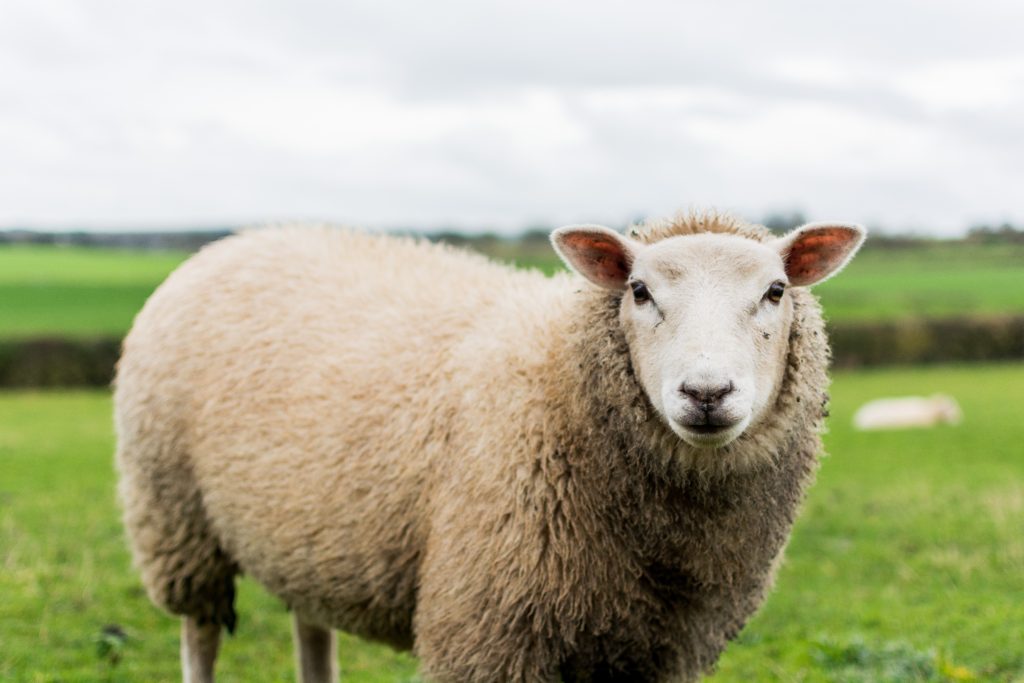
Pro-tips for this alternative to Europe’s tourist-infested cities:
- Make time for Hay. Take a slow, deep breath when you get there. Backpacking is hard; your muscles are sore, your clothes stink, and as amazing as your trip has been, you’re reaching a bit of burnout, getting jaded to the sights, sounds, and smells of the cities. Unwind in Hay, where you can feel like you’re in a Jane Austen novel, sleep in your own room, and make friends with crazy old ladies who love books as much as you do.
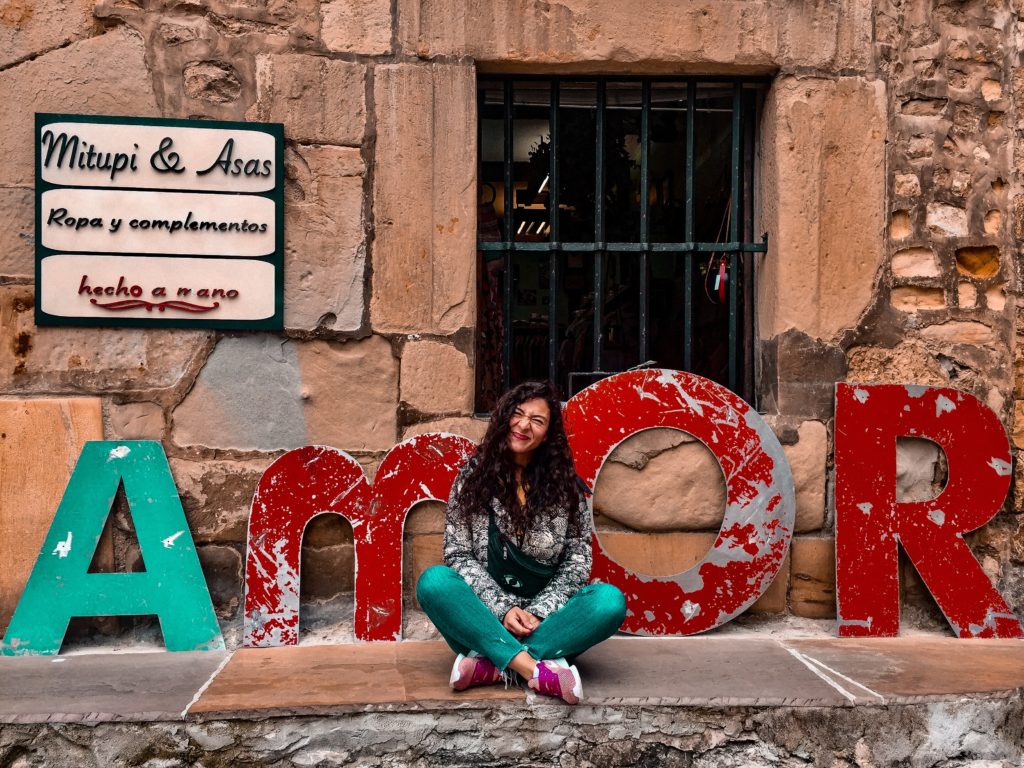
Assisi, Italy Torre Del Colle, Italy
At the top of a lone hill in Umbria about twenty kilometers from Assisi sits Torre Del Colle. Wikipedia lists it as having a population of 33, but it feels closer to a dozen. Surprisingly, over half of them are under the age of forty. The hilltop village is surrounded on all sides by sunflower fields, olive tree orchards, and vineyards, and the village itself is small enough that all of Torre Del Colle can fit in a camera lens from the field directly adjacent to it. Torre Del Colle is home to Ostello Bello Assisi Bevagna, a hostel run by an Argentinian named Felipe and his motley crew of twenty-somethings who came to Italy for adventure and never left. Apart from this, the town has only four things: a church that is only open on Sundays, a bakery that’s always open, a world-renowned Italian restaurant named Serpillo, and a community garden that hosts aperitif and a buffet dinner every evening for the townspeople and whoever is lucky enough to be visiting.
Your day in Torre Del Colle:
You wake up to the smell of fresh croissants from the baker around the corner. Someone’s in the kitchen making coffee, someone else is on the ukulele in the lounge. You take your mug and pastry to the window seat and look out at Umbria beyond. It’s summertime; the sunflower fields are in full bloom. Last night, at dinner in the garden, you let one of the other guests talk you into a bike tour of the region with Daniele, one of Torre Del Colle’s residents who runs a bike rental shop out of his living room. You do not bike, but you also do not go back on your word. So, you suit up with your sneakers and last surviving pair of workout shorts (you will regret the shorts decision later) and walk with your Swedish comrade to Daniele’s house. It takes a full 23 seconds to walk there. Daniele is also eating a fresh croissant from the baker’s, whom you realize is probably personally responsible for no less than 75% of the town’s daily calorie intake. Your bike is waiting for you, along with a bright yellow helmet.
You set off. You’re better at biking than you remember. Daniele leads you and the Swiss down the hill and into the fields below. For two hours, you weave your way through the orchards, sunflower fields, and winelands. Daniele stops every twenty minutes to take pictures of you in the flowers.
You stop in Spello, another cobblestone village with bright flowerpots on every windowsill and hills that make your quads scream. You stop in for a cold beer at MicroBirrificio DieciNove and meet the brew master. You stay for a second cold beer – it’s reallygood beer, or maybe you’re just really sweaty. Next stop is Bevagna, a bigger town known for its annual medieval festival that draws crowds from all over Europe. Currently, it’s dead quiet, and you stop in at the local paper maker’s house, which looks like something out of the 13th century and has no electricity, only candles. The papermaker, who also looks like he was alive in the 13th century, shows you how to make paper from scratch, starting with shredded fabric, into a pot that transforms it into something milky and malleable, and finally through a sieve, a press, and hung out to dry on a line like freshly done laundry. You are enamored. Finally, you’re back out on the road again and stop for a late lunch at De Filippo winery, an organic farm with stallions and damngood wine. The owner has made a several-course meal for you, the Swiss, and Daniele, and the four of you sit together as she explains the palates of the half-dozen wines she’s opened for you. Your thighs are chafed to hell and back.
You’re home at half past three, and god, you need a nap. But the second you’re in the door, Candela, Felipe’s right-hand woman, puts a draught beer in your right hand, grabs your left, and drags you to the pool. Yes, tiny Torre del Colle has a pool, a 2 by 2-meter hole in the ground off the side of the garden. You slip in, eager to escape the intensity of another hot Italian day, then proceed to sleep on the edge of the pool for half an hour until the Swiss lights a rollie and elbows you awake for a puff. You sit up, stretch, and saunter up to the church courtyard with your copy of The Agony and the Ecstasy and lay back against the stone wall, settling in for an hour of reading with a bright yellow sunflower backdrop.
That evening, you put on your one nice outfit (a bit wrinkly) and have dinner at Serpillo. It feels five-stars. The restaurant is run by a thirty-something local man named Daniele (a different one) with gorgeous eyes. He serves you course after course after course: roasted lamb, cacio e pepe, olive ciabatta, rhubarb tartlette. You swoon, sip Montefalco Rosso, and flirt.
After Serpillo, you stumble up the stairs built narrow for cattle and make your way to the tower room. The Tower Room is the best room at Ostello Bello, with, as the name would suggest, a private tower that’s the highest point in the whole village and has a 360-degree view of Umbria. Thankfully, right now, no one’s renting it, which means that you, the Swiss, and the rest of the band can settle in for an evening of smoking and stargazing. You take turns telling stories of your homelands, and laugh as you each sing your national anthems, out of key and groggy with smoke and wine. You’ve never seen so many stars. Serpillo closes shop, and Daniele the Chef joins the group up on the roof. You’re holding his hand, cold stone beneath your knuckles.
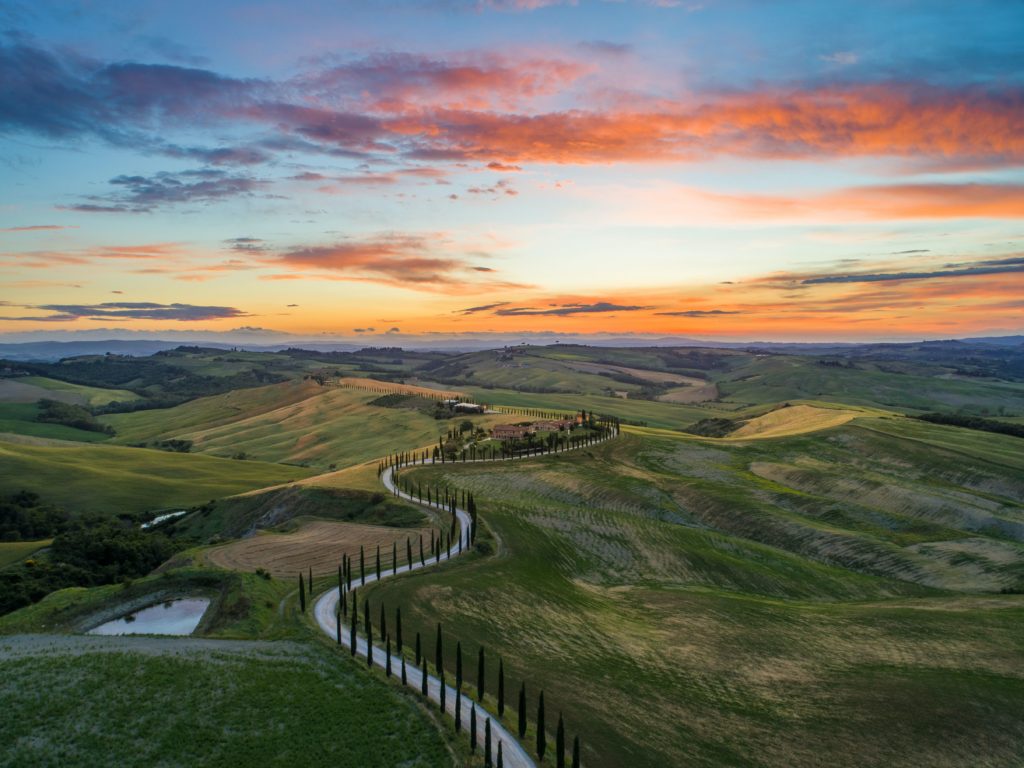
Pro-tips for this alternative to Europe’s tourist-infested cities:
- You don’t need long in Torre del Colle to feel like you’ve had the proper experience. Two or three nights is all you need, and by a fourth you might feel a bit antsy.
- Felipe will pick you up from the train station in Assisi, if you ask.
- Sleep with the chef.
SarahBelle Selig is a freelance writer living in Cape Town pursuing a Master’s in Creative Writing at the University of Cape Town. She freelances for Catalyst Press, an independent publisher of African literature. She’s at work on her first novel.
Maybe you want to try out some fishing villages, too?

